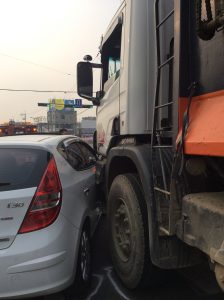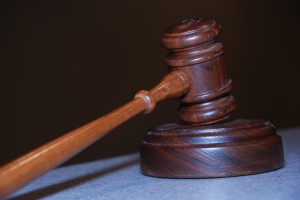Accidents and Personal Injury
- Automobile accidents – if you are injured in a car accident, contact the Tran Law Firm to help determine who is liable and to ensure you are fairly compensated for your personal injury that was caused by others. North Carolina Contributory Negligence Law prevents a driver from collecting damages if determined to be partially at fault. Therefore, if you contribute to an accident, you may not be able to collect on a liability claim. Contact us now for a FREE personal injury consultation and let us help you get the settlement you deserve! You don’t pay us unless you get paid.
- Tips to consider if you’re involved in a motor vehicle crash:
- If the accident resulted in personal injury, death or property damage, you must stop your car at the scene of the accident and stay at the scene of the accident until a law enforcement officer completes the investigation.
- If someone is seriously injured, call for medical assistance. You may provide reasonable assistance and should not be held liable for damages resulting from the effort to provide assistance as long as you are not guilty of wanton conduct or intentional wrongdoing.
- Get the names, phone numbers and addresses of any witnesses who might have information about the accident and try to get a statement as to what happened.
- North Carolina law requires that you provide your name, address, license number and registration information of the vehicle you are driving to the driver of the other vehicle. Any statement you make about the accident may be used against you. You are NOT required to admit fault or liability. No one can force you to provide an opinion as to the cause of the accident at the scene, at police headquarters or anywhere. You have right to consult a lawyer before making any statement.
- If the accident involved a parked car, you should contact the nearest police agency and leave your contact information clearly attached to the damaged property. In any event, police authorities must be informed within 48 hours of all accidents with parked or unattended vehicles.
- Write down detailed notes on all circumstances concerning the accident and include diagrams, if possible. Take pictures of damage to the cars, skid marks on the road, position of the cars, and other evidence that might disappear after the accident.
- An arrest at the scene does not necessarily indicate liability. An arrest or conviction relating to the car accident ordinarily cannot be used against you later in a suit for damages. However, if a person pleads responsible, guilty, or “pays off” the citation, the plea or pay off can be used against that person in a suit for damages as some evidence of negligence.
- Go see a doctor and remember that serious and costly injuries may not always be obvious or result in immediate pain. Inform your insurance company of any injury and of your medical bills.
- Do not make a promise to make a payment and do not make an immediate payment of any kind to the other party. Such promise or payment would be at your own risk.
- Make sure you are adequately insured before an accident occurs. Failure to comply with the financial responsibility law will result in revocation of your license and vehicle registration. Discuss higher limits with your insurance agent, including uninsured motorist, underinsured motorist, medpay, and property damage coverage limits.
- Your car is considered “totaled” by most insurers if the total cost to repair is equal to or greater than 75 percent of the pre-accident actual cash value.
- Contact the Tran Law Firm if you have any questions about your rights, responsibilities, liability or court proceeding following an accident.

- Tips to consider if you’re involved in a motor vehicle crash:
- Construction job-site injuries – the construction jobsite if full of activity with many subcontractors often working diligently to meet deadlines to avoid delays to the project. However, this could lead to OSHA violations or accidents on the jobsite as the workers are too focused on completing the activity. Was the accident or injury due to poor safety compliance? Did an OSHA violation lead to the accident? Who was responsible for compliance? Contact the Tran Law Firm to allow us to assist you through this tough and confusing time to ensure you are properly compensated for your injuries that were caused by others.
- Workers’ Compensation for injuries at work – Most workers’ compensation claims are administered either by the workers’ compensation insurance carrier or, in the case of a self-insured employer, a claims administrator. The employee should complete the North Carolina Industrial Commission Form 18 and give it to the employer. It should be noted that “pain and suffering” is not covered by the Worker’s Compensation Act. The ongoing pain contributing to a disability could be compensable, but the pain itself is not. This is in contrast to personal injury cases, where pain and suffering are usually part of the claims process.
- Social Security Disability claims – this application process can be long and grueling — many non-represented applicants who need the benefits give up on their applications that are sometimes in the process for years. What they don’t know is that a Social Security disability lawyer can potentially double their chances at getting the benefits they need.
- Slip and Falls claims.
- Medical Malpractice and Wrongful Death claims
- Nursing Home Negligence claims.
Traffic
Traffic violations are expensive, averaging over $100-$150 for the ticket itself, but could cost you thousands of dollars more in added insurance premiums. If you plead not guilty and you ask for a court date, there is a good chance of reducing your fine, reducing the points on your license, and protecting yourself from higher insurance rates. Let the Tran Law Firm contest your traffic violations. We can file the proper motions for appropriate relief and will appear on your behalf so you do not have to miss out on work, part of your paycheck, or time spent with your family and friends. 
Remember your car should always contain your current registration and your current insurance information. If you are involved in an automobile accident, please consider the following actions:
- Stop your automobile at the scene of the accident and remain at the scene until a police officer completes the investigation and authorizes for you to leave.
- Immediately seek medical assistance if someone is seriously injured.
- North Carolina law requires drivers of vehicles involved in accidents resulting in personal injury or property damages of $1,000 or more, shall immediately notify the local police department.
- Obtain the names, phone numbers and addresses of any witnesses who might have information about the accident.
- Provide your name, address, driver’s license, and the vehicle’s registration number to the person struck or the driver or occupants of the other vehicle; and the other driver should provide you with the same information. It is advisable, but not required, that all parties exchange information on their insurance company or policy number. Remember that any written or oral statement you make may make may be used against you. You are not required to admit fault or liability and should consult an attorney if you have any questions about whether or not you should make a statement about an accident.
- Take your own notes on all significant circumstances concerning the accident and take photos of the scene of the accident.
- Remember that an arrest at the scene does not necessarily indicate liability, however, if you plead responsible or guilty or pay the citation, the plea or pay off can be used against you in a suit for damages or as some evidence of negligence.
- If necessary, see a doctor and inform your insurance company of any injury or medical condition and of your medical bills.
- Make a complete report to your automobile insurance company, or if you prefer, have your lawyer make the report for you.
- You are not required to make an immediate payment at the scene of the accident and doing so would be at your own risk. The other driver cannot force you to many any payment without legal proceedings.
